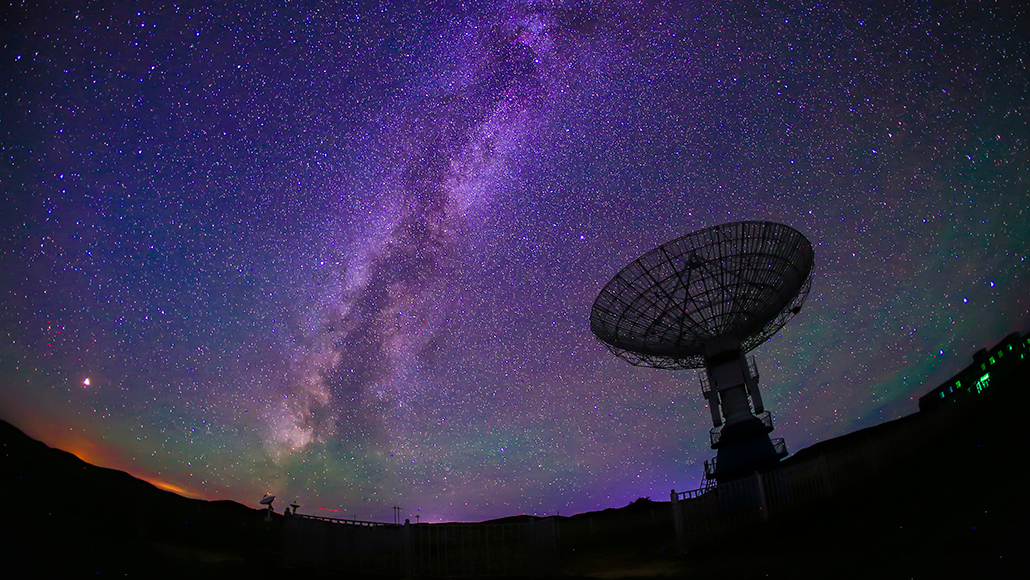"We found that just a small presence of sulfur in the atmosphere, less than 2%, can have major impacts on what, and how many, haze particles are formed," says Chao He, an assistant research scientist in the Department of Earth and Planetary Sciences at The Johns Hopkins University and the study's first author.
"This entirely changes what scientists should look for and expect when they examine atmospheres on planets beyond our solar system."
While scientists already know that sulfur gases influence the photochemistry of many planets within the solar system such as Earth, Venus and Jupiter, not much is known about sulfur's role in the atmospheres of planets beyond the solar system, or exoplanets.
Quite a lot has been going on:
New search methods are ramping up the hunt for alien intelligence | Science News

He had pointed the National Radio Astronomy Observatory's new 26-meter telescope at the star Epsilon Eridani on April 8 of that year, and within minutes, the instruments went wild. The telescope's readout device, a chart recorder that used a pen to scratch out signatures of incoming signals on paper, scribbled erratically. A speaker connected to the telescope blared a train of strong pulses — just the kind of transmission expected from an intelligent sender. Drake was stunned.
It wasn't. When the telescope found the signal again several days later, a radio antenna pointed in different direction also picked up the noise. The signal wasn't otherworldly at all; it was coming from an earthly source, like an airplane.
NASA's Been Social Distancing Astronauts and Spacecraft for Decades. Why? Just in Case... | KQED

But did you know that NASA has been engaged in these practices, on an interplanetary scale, for decades?
* * *
NASA's Office of Planetary Protection has established policies for preventing the transfer of terrestrial microbes and organic materials to other planets and moons in our solar system, as well as the protection of Earth from extraterrestrial organisms that might be carried back.
These policies are designed to mitigate accidental cross-contamination by missions of exploration where a "stay-at-home" approach just doesn't work. These practices include:
Could Mars samples brought to Earth pose a threat to our planet?

NASA and the European Space Agency plan to haul pristine Mars samples to Earth in the near future, perhaps in the 2030s .
Receiving pieces of the Red Planet in this way is deemed to pose a low risk to ecological and public safety — but that risk is not zero.
The Mars samples, which will be collected and cached by NASA's Perseverance rover, could end up being biological "hot property." And the material might spark heated debate and public anxiety about creepy-crawlies from Mars chomping away at Earth's biosphere.
Many things are taking place:
Time to Make a Buck, Roger - WSJ
Happening on Twitter
New discoveries from @JohnsHopkins researchers suggest that a certain elemental 'variety'—sulfur—is indeed a 'spice… https://t.co/LMAYA3EyU4 SETIInstitute (from Mountain View, CA) Tue Apr 07 23:16:02 +0000 2020

No comments:
Post a Comment